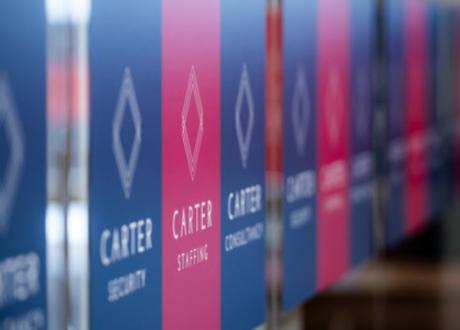Considering a role in the security industry isn't just a career choice, it's a lifestyle one -- and a rewarding one at that!
As far as formal qualifications go, there are a number of boxes that need to be ticked. To qualify you'll need:
- To be 18 or over
- Pass identity and criminal record checks
- Have a valid SIA license
With so many different roles within security, it's worth considering what type of job you're looking for, and whether or not you're willing to make the necessary commitments to succeed. For example, door supervisors will need to have great social and communication skills, mobile patrols and manned guarding will often involve night shifts, and event security will rely on incredible teamwork.
Below, we list a few lifestyle and personality traits that might help indicate whether a career in security is for you.
1. You'll need to be comfortable working independently as well as part of a team.
As a national security company, many of our security guards work remotely. This might involve working with several colleagues or it might mean independent working, and it's important you feel comfortable doing both. If a situation arises that requires immediate action -- for example, if you're working as part of an alarm response team, you'll need to be comfortable working under pressure too.
2. You'll need to be physically fit and comfortable working outdoors in all weathers.
With the exception of a few roles, such as indoor retail security or door supervising in an indoor venue, the majority of security guards work outside. Of course, you'll be provided with the necessary PPE so you're well-equipped for the role, but it would be beneficial if you enjoyed working outside too!
3. You'll be socially confident with brilliant communication skills.
Whether it's communicating directly with clients or with members of the public, excellent communication skills are a huge factor. This couldn't be more important for COVID-19 Marshals who not only need to be entirely up to date with current government guidance, but also know how to explain this to members of the public. Written communication skills are also important, as clients may require a brief written summary of each shift.
4. You'll be able to adjust to a flexible working schedule.
Finally, there's the ability to be able to adapt to a flexible working schedule. Being able to step in should illness or annual leave affect normal shift patterns makes for an excellent team. It might also affect your usual location for work too should you be called on to cover a different shift for a different client.
With all this said, it's worth noting that a career in security offers progression, responsibility and the ability to work alongside like-minded individuals. It's a position of respect and trust, where no day is ever the same, making it a brilliantly rewarding role too.
For more information on how we can support your business during these unusual times, please don't hesitate to get in touch with a member of our team.
Alternatively, if you're looking to further your career within the security industry, please check the careers section on our website or email us an up to date copy of your C.V. We never subcontract our staff, we invest in their training and we work hard to support our staff. We look forward to meeting you.
Follow us on LinkedIn
Follow us on Twitter
Follow us on Facebook


